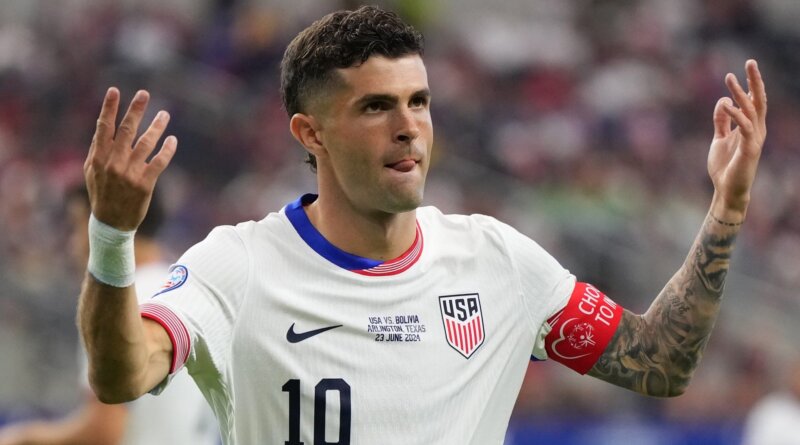Pulisic World Cup Captaincy: Why Leadership Runs Deeper Than the Armband
Christian Pulisic World Cup captaincy has become a major talking point as the 2026 tournament approaches, with fans and pundits debating whether the AC Milan star should lead the USMNT on home soil. Despite his “Captain America” moniker and undeniable influence on and off the pitch, former United States goalkeeper Brad Friedel believes Pulisic missing out on the captain’s armband would not be a significant issue—and in fact, could be a positive sign for the squad’s evolution.
Christian Pulisic World Cup Captaincy: The Reality of Team Leadership
Pulisic has already captained the United States men’s national team at various stages and remains a central figure in Gregg Berhalter’s plans for 2026. However, Friedel’s recent comments echo Chelsea manager Mauricio Pochettino’s philosophy of wanting “11 leaders” on the field, rather than relying solely on one individual for inspiration and guidance.
In Friedel’s view, “It would not be a big deal at all if Christian Pulisic isn’t captain at the next World Cup. In the modern game, the armband is more a symbolic gesture; what matters is having multiple players who can step up and lead in different ways.”
Depth of Leadership in the USMNT Squad
The United States has seen a new generation of talent emerge, with experienced players such as Weston McKennie, Tyler Adams, and Matt Turner all capable of taking on leadership roles. The build-up to the 2026 World Cup, hosted jointly by the United States, Canada, and Mexico, will see Berhalter assess not just technical abilities, but also the mental and emotional maturity required to lead on football’s biggest stage.
Pulisic’s commitment to the team was underlined by his decision to skip the 2023 Gold Cup to focus on a vital club transition to AC Milan. Despite this, he remains indispensable for the USMNT, providing attacking flair and a winning mentality honed in top European leagues.
The Importance of Shared Leadership
Mauricio Pochettino’s statement about wanting “11 leaders” reflects a broader shift in elite football: teams function best when responsibility is distributed, and players are empowered to communicate, motivate, and hold each other accountable. In this context, Pulisic World Cup captaincy is less about personal accolades and more about contributing to a strong team culture.
Leadership can take many forms—vocal encouragement, tactical awareness, resilience under pressure, or simply leading by example on the pitch. The USMNT’s current generation is uniquely positioned to embrace this collective approach, with Pulisic at the heart of a group that values unity and shared responsibility.
Looking Ahead: USMNT’s Leadership Evolution
As the countdown to 2026 continues, the captain’s armband will inevitably become a topic of speculation. Yet, the focus should remain on fostering a squad where leadership runs deep throughout the lineup. Pulisic, regardless of official title, has already demonstrated his ability to inspire teammates and fans alike.
Whether he wears the armband or not, his experience at the highest levels of club football—and his unshakeable commitment to the national team—make him a cornerstone of the USMNT project. For more news on Pulisic and USMNT preparations, visit for more news.
Opinion: Beyond the Armband—Why This Debate Matters
Ultimately, the Christian Pulisic World Cup captaincy debate reflects the growth and maturation of American soccer. The fact that the USMNT can count on several leaders is a testament to the talent pipeline and positive culture being cultivated. Pulisic’s influence will remain undiminished, and a balanced leadership group will only strengthen the team’s prospects in 2026. The real victory will be a unified, confident USMNT—no matter who wears the armband.
Your global gateway to nonstop football coverage:
News Goal
Share this content:

